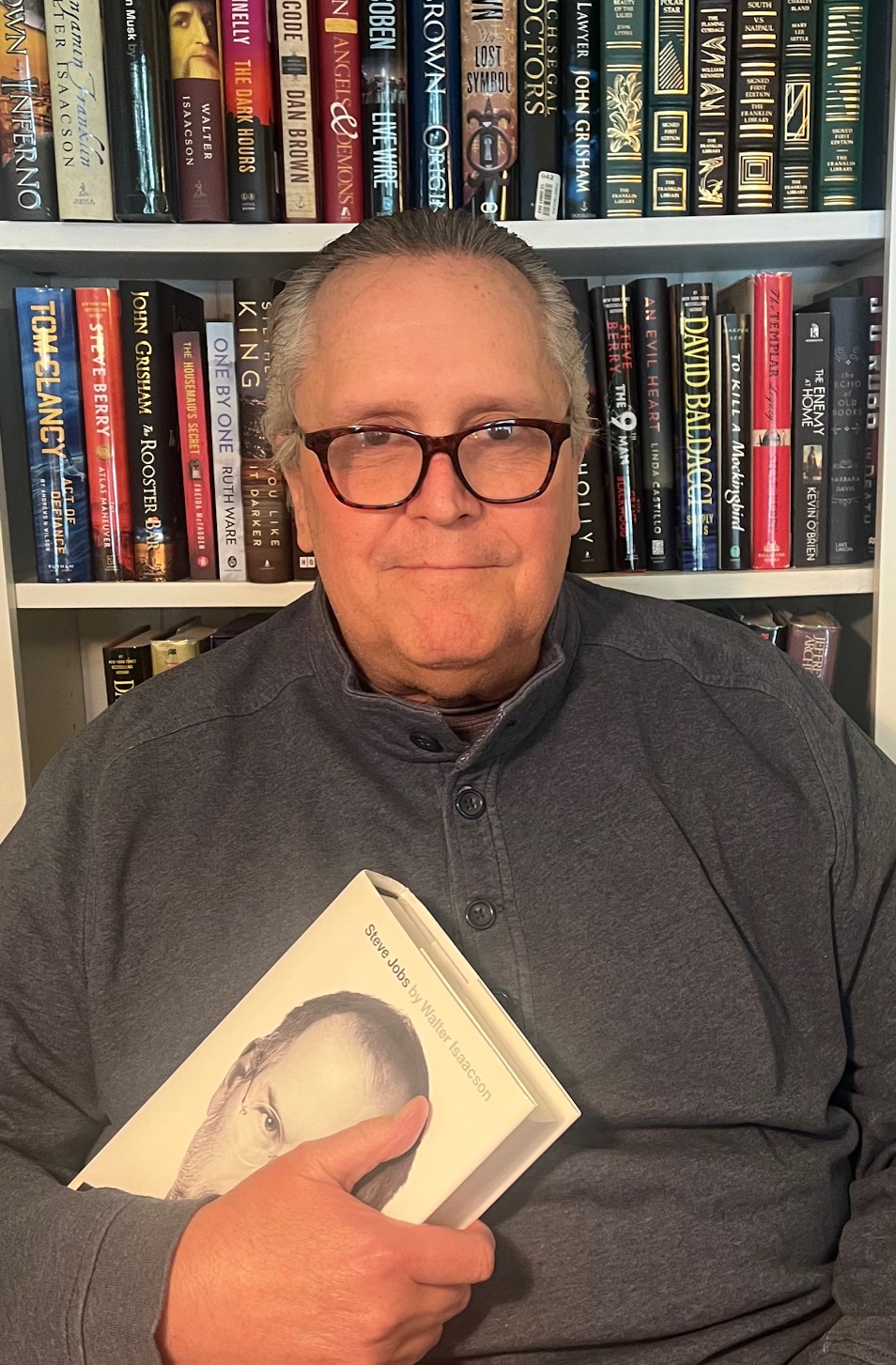Author: Ron Chernow
Publisher: Penguin Press
Print Length: 1,200 pages
+++++++++++++++++++++++++++++++++++++++++++++++++++++++++++++++
Let’s start with the obvious: Ron Chernow’s Mark Twain is a thick book. And when I say thick, I don’t mean your average “oh, this one’s a bit hefty.” No, this one is 1,200 pages long. That’s more than some people read in a year! If this book were a meal, it would be a seven-course feast with extra dessert. If it were a workout, it’d be a marathon where you also have to carry weights. You get the idea. It’s a commitment. But hey, if there’s anyone worthy of such literary excess, it’s Mark Twain—America’s most beloved humorist, satirist, and the man who made the mustache look cool before hipsters ruined it. Chernow dives deeply (and I mean deeply) into the life of Samuel Langhorne Clemens, better known as Mark Twain, and delivers what is undoubtedly an exhaustive and well-researched biography. However, as much as I respect Chernow’s scholarship, I have to wonder: did we really need 1,200 pages to cover Twain’s life?
Let’s unpack this tome—one chapter at a time. (Just kidding, we don’t have all day.)
Chernow’s Research: Thorough or Overkill?
First, let’s give credit where it’s due: Ron Chernow is a master biographer. He’s the guy who brought Alexander Hamilton back into the public eye (and indirectly gave us the hit musical Hamilton). The man knows how to dig through letters, diaries, and archives like a detective at the scene of a crime. In Mark Twain, Chernow does what he does best: he gives us a portrait of Twain that is vivid, nuanced, and multifaceted. We see Twain the writer, Twain the family man, Twain the businessman (a terrible one, by the way), and Twain the cultural icon.
But here’s the thing: Chernow leaves no stone unturned. And I mean no stone. If Twain stubbed his toe in 1873, there’s probably a three-page digression about it in this book. He covers Twain’s childhood in Missouri, his time as a riverboat pilot, his adventures in the Wild West, his successes, his failures, his travels, his family tragedies, his political opinions, his financial woes, his eating habits, and even his opinions on the weather. It’s all in there. At a certain point, you start to feel like you know Twain better than you know your own family.
Now, don’t get me wrong—there’s something to be said for thoroughness. But at 1,200 pages, the book sometimes feels less like a biography and more like a hostage situation. There were moments when I found myself thinking, “Okay, Ron, we get it. Twain was complicated. Can we move on now?
Twain: The Man, the Myth, the Mess
One of the book’s greatest strengths is how it humanizes Twain. It’s easy to think of him as this larger-than-life figure—the man who wrote The Adventures of Tom Sawyer and Adventures of Huckleberry Finn, the guy with the witty one-liners and the bushy mustache. But Chernow shows us that Twain was just as flawed and contradictory as the rest of us. For example, Twain was a brilliant writer, but he was also a deeply insecure one. He agonized over his work, often doubting whether he was any good at all. He was a loving husband and father, but he could also be selfish and emotionally distant. He was a fierce critic of racism and imperialism, yet he held some views that, by today’s standards, would be considered problematic. He was a financial disaster who managed to lose a fortune on bad investments (looking at you, Paige typesetting machine) but somehow clawed his way back to solvency through sheer grit and determination.
Chernow captures all of these contradictions beautifully. Twain comes across as a real person—messy, brilliant, funny, tragic, and utterly fascinating. You can’t help but admire him, even when you want to shake him and yell, “Why are you like this?”
The Writing: A Little Dry, A Little Dense
Here’s where things get tricky. While Chernow’s research is impeccable, his writing can sometimes feel a bit…academic. Don’t get me wrong—he’s a great writer. But when you’re dealing with a subject as lively and irreverent as Mark Twain, you kind of want the prose to reflect that. Twain was a man who once said, “Never let the truth get in the way of a good story.” Chernow, on the other hand, seems to have taken the opposite approach: “Always let the truth get in the way of a good story, and then write 10 extra pages about it.” There are moments of humor and levity in the book, but they’re few and far between. For a biography about one of the funniest men in American history, it’s surprisingly…serious. At times, I found myself wishing Chernow would loosen up a bit and channel a little of Twain’s wit and irreverence. After all, Twain once wrote an essay titled Advice to Youth that included gems like, “Always obey your parents when they are present.” The man had a gift for turning conventional wisdom on its head, and I would have loved to see Chernow embrace that spirit more fully.
The Structure: An Epic Journey
Another aspect worth discussing is the book’s structure. Chernow organizes Twain’s life chronologically, which is a classic approach but can lead to a bit of a slog, especially in the later chapters. At times, it felt like I was reading an epic saga, complete with twists, turns, and a cast of supporting characters that rivaled a Shakespearean play. And just when you think you’ve reached the climax, there’s a whole new act to get through! The sheer volume of detail can be overwhelming. I found myself occasionally losing track of who was who in Twain’s life. Did I really need to know about every single acquaintance he made on his travels? Probably not. I suspect that if Twain were to critique this biography, he might say, “Too many words, Ron! You’re drowning the punchline!”
Themes of American Identity and Humor
One of the most fascinating aspects Chernow explores is Twain’s relationship with American identity. Twain was not just a chronicler of American life; he was also a critic of it. His biting satire addressed the social issues of his time, from slavery to imperialism, and his work remains relevant today. Chernow does a commendable job of unraveling how Twain’s experiences shaped his worldview and his writing. But here’s the kicker: while Chernow does delve into these themes, I often felt that he could have taken a bolder stance. Twain was a man who loved to poke fun at the absurdities of society, and I wished Chernow had embraced that spirit a bit more. Instead of just recounting events, I wanted to see Chernow wrestle with the contradictions of Twain’s legacy. What does it mean to be an American? How do we take Twain’s humor and apply it to today’s world? These are questions worth exploring, and I felt Chernow missed an opportunity to dig deeper.
Is It Worth the Read?
So, the big question: should you read Mark Twain by Ron Chernow? If you’re a hardcore Twain fan or a history buff who loves a deep dive, then absolutely. This book is a treasure trove of information. You’ll come away with a newfound appreciation for Twain’s genius and a better understanding of the world he lived in. Plus, you’ll probably develop some impressive arm muscles from lugging the book around. But if you’re a casual reader who just wants to learn a bit more about Twain without committing to 1,200 pages, you might want to look elsewhere. There are plenty of shorter biographies out there that cover the basics without making you feel like you’ve been trapped in a library for six months. And let’s not forget the reality of time management. If you’re someone who struggles to find time to finish a magazine article, then Mark Twain might be more than you bargained for. However, if you have the time and the inclination to dive deep into the life of one of America’s literary giants, it could be a rewarding experience.
Final Thoughts
Ron Chernow’s Mark Twain is an ambitious, meticulously researched biography that offers a comprehensive look at one of America’s greatest literary icons. It’s a book that demands your time, your attention, and possibly a stronger bookshelf. While it’s undeniably impressive in its scope and depth, it’s not without its flaws. At times, the book’s length and density can make it feel like a slog, and Chernow’s writing doesn’t always capture the humor and vitality that made Twain such a beloved figure. That being said, if you’re willing to put in the effort, this book is a rewarding read. You’ll laugh, you’ll cry, you’ll learn more about 19th-century America than you ever thought possible. Just make sure you have a lot of coffee—and maybe a chiropractor on speed dial.
In conclusion, Mark Twain by Ron Chernow is an epic journey through the life of an American legend. It’s not just a biography; it’s a deep dive into the soul of a nation, filled with laughter, heartache, and the kind of wisdom that only comes from a life fully lived. Chernow’s work reminds us that Twain wasn’t just a writer; he was a mirror reflecting the complexities and contradictions of life itself.







